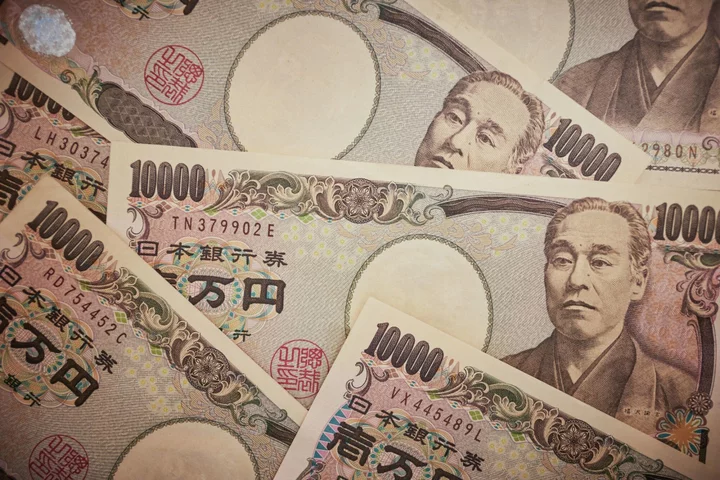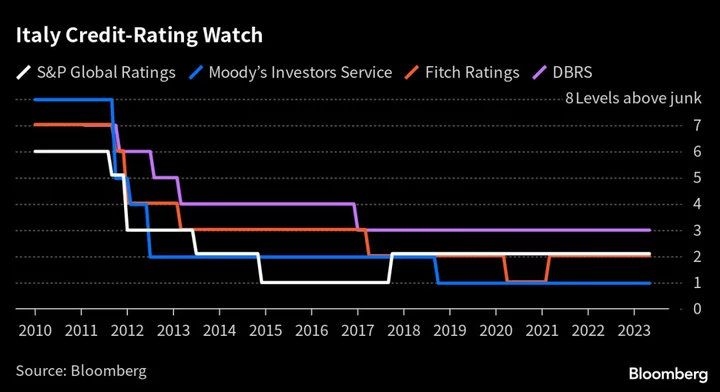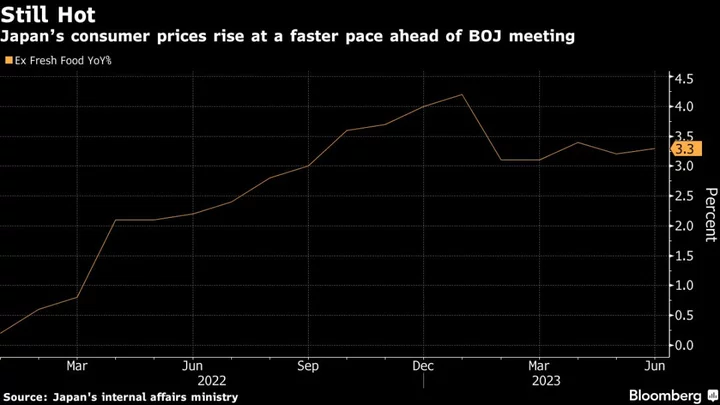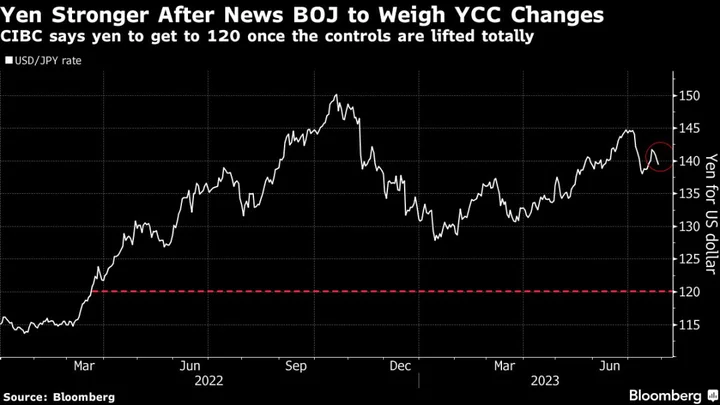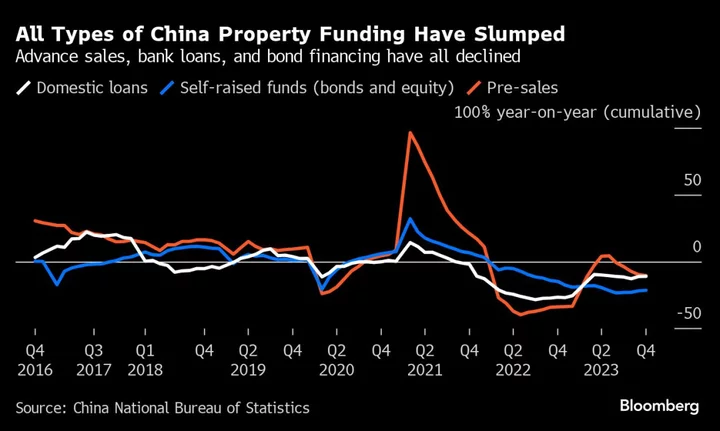The yen slid to a 15-year low against the euro and extended declines against the dollar after the Bank of Japan fell short of market expectations in loosening its control of bond yields.
The Japanese currency rose above 160 per euro for the first time since August 2008 and weakened past 150 against the dollar after the BOJ on Tuesday removed a 1% yield cap on its daily bond purchases. This leaves the yen open to the possibility of the Japanese government intervening to curb further sharp movements.
The BOJ’s shift disappointed traders betting on more decisive action to roll back yield-curve control. Higher yields could encourage Japanese investors to bring money back home, which would have a knock-on impact for everything from US Treasuries to equities.
“The Bank of Japan clearly didn’t raise the roof anywhere near what was expected,” said Stephen Innes, a managing partner at SPI Asset Management. “And it seems that at this stage, the BOJ is unlikely to tolerate a sharp increase in long-term interest rates.”
The central bank scrapped a pledge to conduct daily bond purchasing at a fixed 1% level, saying that was now a reference point and a strict cap may have big side effects. It also raised its inflation forecasts for this and coming years.
Read more: BOJ Further Loosens Grip on Bond Yields in Modest Policy Tweak
That pushed up Japan’s 10-year sovereign bond yields to 0.95%, the highest in a decade, while Japanese stocks closed higher, supported by the depreciation in the currency. Japan’s 10-year overnight index swaps point to higher rates on the horizon, though the BOJ remains the last major global central bank to cling to a negative interest rate.
“BOJ is still inching towards policy normalization, but the step in terms of a YCC tweak falls short of speculation of bolder change,” said Moh Siong Sim, FX strategist at Bank of Singapore Ltd. “Focus shifts back to currency intervention watch for now.”
The yen dropped more than 1% against the dollar and slumped 1.6% versus the euro Tuesday. It’s been the worst Group-of-10 currency this year, after losses of more than 10% against the greenback in 2022 and 2021, with the BOJ’s interest-rate regime weighing it down.
BOJ Governor Kazuo Ueda told a briefing after the decision that currency volatility can adversely affect the economy, and repeated moves should be in a stable fashion and reflect fundamentals.
“In the short term, USD/JPY could go as high as 152,” said Juntaro Morimoto, senior FX analyst at Sony Financial Group Inc. in Tokyo. “The hurdle for the BOJ to lift negative interest rates seems high.”
Touching 152 would take the yen beyond a weak point of 151.95 set in October last year and to levels last seen in 1990.
Read more: Dollar-Yen May See 160 If BOJ Buys More JGBs, RBC BlueBay Says
The currency’s slide has fueled inflation that’s been above the BOJ’s target of 2% since April 2022 by boosting import prices, adding pressure on the central bank to take action. It’s also piled pressure on the government from voters facing higher living costs.
Market speculation surrounding the possibility of a yield-curve control tweak had escalated after the yen breached the key threshold of 150 last week and as 10-year yields began approaching the bank’s defense line in the lead-up to the meeting.
The BOJ has faced a conundrum on the YCC policy, with both action or inaction coming with costs. Policymakers had been expected to monitor yield movements until the very last minute before making their decision.
Views in the market had tended toward positioning for a policy tweak. These were amplified by local media reports in the final 24 hours before the BOJ meeting concluded, with the Nikkei suggesting policymakers were likely to consider allowing the 10-year yield to temporarily rise above 1%.
RBC BlueBay Asset Management believes a climb in the 10-year yield toward 1.1% would trigger more bond buying by the central bank, adding that such a move could be driven by a further rise in US Treasury yields.
“If it is being forced to intervene to buy more bonds, effectively they are delivering more dovish monetary policy,” BlueBay’s Chief Investment Officer Mark Dowding told Bloomberg TV. “This is going to undermine the yen and you can see scenarios where dollar-yen is heading toward 160, with investors essentially concluding that Ueda is making a policy mistake.”
--With assistance from David Finnerty, Matthew Burgess and Naomi Tajitsu.
(Updates price moves throughout, adds comments.)

